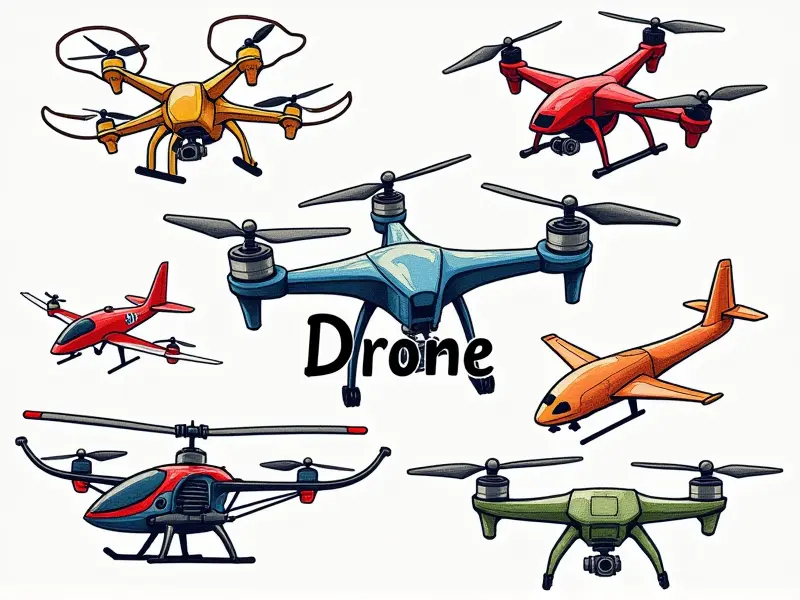Are brushless motors reliable?

Are Brushless Motors in RC Reliable?
The reliability of brushless motors in remote-controlled (RC) vehicles is a critical factor for enthusiasts and professionals alike. These motors have become the standard choice due to their efficiency, power-to-weight ratio, and durability. However, concerns about longevity and maintenance still linger among users.
Lifespan of Brushless Motors RC
The lifespan of brushless motors in RC applications can vary widely depending on several factors such as usage frequency, operating conditions, and maintenance practices. Typically, a well-maintained brushless motor can last for hundreds or even thousands of flight hours before showing signs of wear.
Durability of Brushless Motors RC FAQ
- Q: How long do brushless motors typically last?
- A: With proper care and usage, brushless motors can last for several years or thousands of flight hours.
- Q: Do brushless motors wear out faster than brushed motors?
- A: Brushed motors tend to have shorter lifespans due to the constant friction between brushes and commutator. In contrast, brushless motors last longer as they lack these components.
- Q: Can brushless motors be repaired if they fail?
- A: While some internal components can be replaced or repaired by skilled technicians, many failures require motor replacement due to the complexity and cost of repairs.
Common Issues with Brushless Motors RC
Despite their reliability, brushless motors are not immune to issues. Common problems include:
- Burnout: Overheating caused by excessive load or poor cooling can lead to motor burnout.
- Mechanical Failure: Bearings and shafts can wear out over time, leading to decreased performance and eventual failure.
- Electrical Faults: Short circuits or damaged windings due to moisture exposure or physical damage.
Testing Brushless Motor Reliability in RC
To ensure the reliability of brushless motors, it's essential to conduct regular testing and maintenance. This includes:
- Voltage Testing: Check for voltage drops across the motor terminals.
- Resistance Measurement: Measure winding resistance to detect short circuits or open windings.
- Load Testing: Operate the motor under simulated load conditions to assess performance and heat generation.
Longevity of Brushless Motors for RC Helis
RC helicopters are particularly demanding on motors due to their high power requirements and continuous operation. However, brushless motors designed specifically for helis can offer excellent longevity with proper maintenance:
- Regular Cleaning: Remove dust and debris from the motor housing.
- Lubrication: Apply lubricants to bearings as recommended by the manufacturer.
- Torque Testing: Ensure that torque settings are appropriate for the motor's specifications.
Brushless Motor Failures in RC Quadcopters
Quadcopters rely heavily on brushless motors for their stability and performance. Common failure modes include:
- Burnout from Overheating: Excessive load or poor ventilation can cause overheating.
- Mechanical Wear: Shaft wear, bearing degradation, and other mechanical issues.
- Electrical Malfunctions: Short circuits due to moisture exposure or physical damage.
Maintaining Brushless Motors for RC Planes
To maximize the lifespan of brushless motors in RC planes, follow these maintenance tips:
- Clean Regularly: Remove dust and debris from motor housings to prevent overheating.
- Lubricate Bearings: Apply lubricants as recommended by the manufacturer.
- Check Connections: Ensure all electrical connections are secure and free of corrosion.
Reliability of Brushless Motors in FPV Racing
In high-performance applications like FPV racing, brushless motors must withstand extreme conditions. Key factors affecting reliability include:
- Heat Management: Efficient cooling systems are crucial to prevent overheating.
- Bearing Quality: High-quality bearings can significantly extend motor life under heavy loads.
- Electrical Protection: Proper insulation and moisture protection reduce the risk of electrical faults.
How Reliable are Brushless Motors in Quadcopters?
The reliability of brushless motors in quadcopters is generally high, but it depends on several factors. Regular maintenance, proper cooling, and adherence to manufacturer guidelines can greatly enhance motor longevity:
- Proper Installation: Ensure correct mounting and alignment.
- Regular Inspection: Check for signs of wear or damage regularly.
- Maintain Cleanliness: Keep motors free from dust and debris.
Comparing Brushed vs Brushless Motor Reliability
Brushless motors offer several advantages over brushed motors in terms of reliability:
- No Wear Parts: Lack of brushes and commutators reduces wear points.
- Better Heat Dissipation: Brushless motors generally have better cooling capabilities.
- Higher Efficiency: Reduced energy loss means less heat generation, leading to longer motor life.
Conclusion
In conclusion, brushless motors are highly reliable for RC applications when properly maintained and operated within their specifications. While they can encounter issues such as overheating or mechanical wear, these problems are generally rare compared to brushed motors. By adhering to best practices in maintenance and testing, users can maximize the lifespan of their brushless motors and enjoy optimal performance from their RC vehicles.

